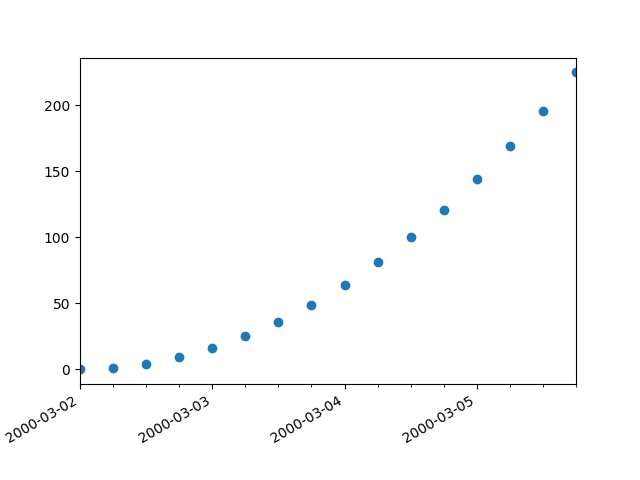Note
Go to the end to download the full example code
Date Demo Convert#

import datetime
import matplotlib.pyplot as plt
from matplotlib.dates import DayLocator, HourLocator, DateFormatter, drange
import numpy as np
date1 = datetime.datetime(2000, 3, 2)
date2 = datetime.datetime(2000, 3, 6)
delta = datetime.timedelta(hours=6)
dates = drange(date1, date2, delta)
y = np.arange(len(dates))
fig, ax = plt.subplots()
ax.plot(dates, y**2, 'o')
# this is superfluous, since the autoscaler should get it right, but
# use date2num and num2date to convert between dates and floats if
# you want; both date2num and num2date convert an instance or sequence
ax.set_xlim(dates[0], dates[-1])
# The hour locator takes the hour or sequence of hours you want to
# tick, not the base multiple
ax.xaxis.set_major_locator(DayLocator())
ax.xaxis.set_minor_locator(HourLocator(range(0, 25, 6)))
ax.xaxis.set_major_formatter(DateFormatter('%Y-%m-%d'))
ax.fmt_xdata = DateFormatter('%Y-%m-%d %H:%M:%S')
fig.autofmt_xdate()
plt.show()